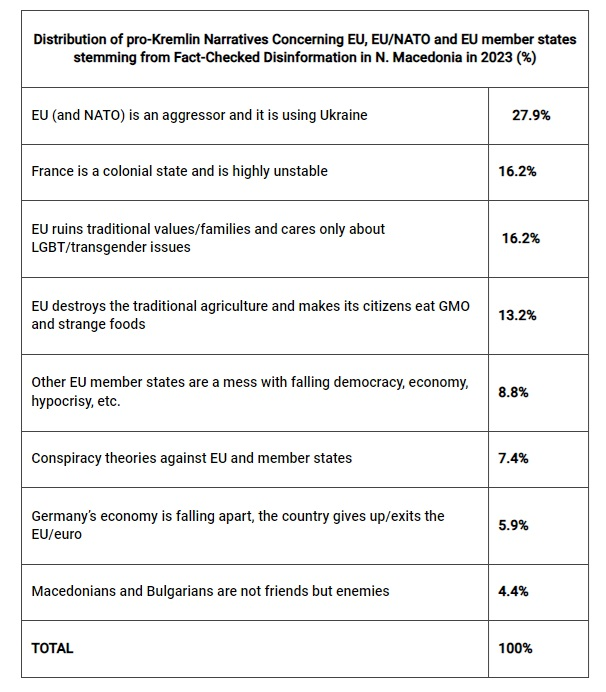How can they persuade you that your food is bad and that your leaders are to be blamed? Well, by lying to you about it and about the process of growing it – the agriculture. You all know your food. You consume it every day. You also know that it is very important because you can’t live without it. Therefore, they will make you worried that you will be left without it, or you will be forced to consume foods you don’t like, you are not used to, you find unappealing, or you never tried. They will use food to create lies about the wider society by persuading you how bad it actually is and how dishonest the elites running it are. This is pretty much in line with the Kremlin’s intentions when it comes to weaponizing food for propaganda purposes. Of course, not all food disinformation comes from the Kremlin’s propaganda outfits, but they have shown a willingness to build and expand existing lies on this issue or adjust it to their needs.
So, we are witnessing disinformation claiming that the European Union will force us all to eat insects, supposedly for the sake of protecting the environment and that diet powders from fat-free crickets are being secretly distributed. Such disinformation first appeared in the British tabloids in pre-Brexit days, as a way to pit the British public against the EU (we all know how that ended), but now it is shared by profiles known to attack the West or Ukraine.
Fruit and vegetables in the EU and more widely in Western countries are all genetically modified, they are trash and have no taste, says this post, while sharing a video of an enraged “Ukrainian refugee” strolling through a Western supermarket with an increasing anger about the food he is forced to buy. Of course, we never see the face of this refugee spreading disinformation, we have no idea if he is who he claims to be, but what we know is that he has no problem spreading the Kremlin’s narratives about declining EU, where even the food is not real.
Then we continue to the EU’s (nonexistent) secret agenda to destroy traditional agriculture for the sake of reversing global warming. Some of this propaganda is also being spread in the building of the European Parliament. We can’t know for sure the intent of spreading such disinformation - do they know that it fits the Kremlin’s narrative or not, but it has been heard in the EU’s highest legislative chamber.
 Source: Vistinomer.mk
Source: Vistinomer.mk
All this disinformation also reaches the Macedonian media space and social platforms, trying to make you doubt the EU’s intentions, the accountability of the EU leaders and institutions and even the value of democracy itself. It might not work on everybody, but it certainly might raise suspicions in at least some people as you are told that if you are in favor of the EU, you should eat insects in order to survive.
The manipulations do not end here. Measures taken by the government against the African swine fever are also targeted by disinformation. Attempts are being made to turn the public against the European Union using this disease, so it is said that the measures against livestock virus are the result of some kind of the “American agenda”, implemented by the European Union on the territory of its member state - Croatia. This makes it look like the EU is a pawn of the US - one of the favorite Kremlin disinformation narratives.
It has been omitted that the euthanasia of pigs in Croatia is due to the African swine fever, an extremely contagious disease, and not because of the existence of some global plan to destroy traditional food production and switch to synthetic food. There is no global or EU conspiracy to destroy agriculture, of course. But sometimes the conspiracy theories do not pass by without being augmented in the social media.
Very often those who share the Kremlin’s disinformation are not even aware of its origin, because they encountered it through social media as something shared by a trusted friend or acquaintance. The danger becomes serious when such disinformation, shared by close acquaintances, friends, relatives, media, and trusted politicians, ends up being so numerous that it creates an impression that it is the truth, as many people repeat the manipulation. It can lead to mistrust about the food we eat, which is of great significance for our health and well-being. We start blaming those in charge of its production or the regulators in charge of its quality. All this makes the food propaganda dangerous. Also, all of the disinformation mentioned in this article has been imported into N. Macedonia. None of it is native. This means it has a viral capacity - it can spread everywhere, which in turn means dealing with it should be taken seriously.
Author: Vladimir Petreski
Background illustration: Michelle